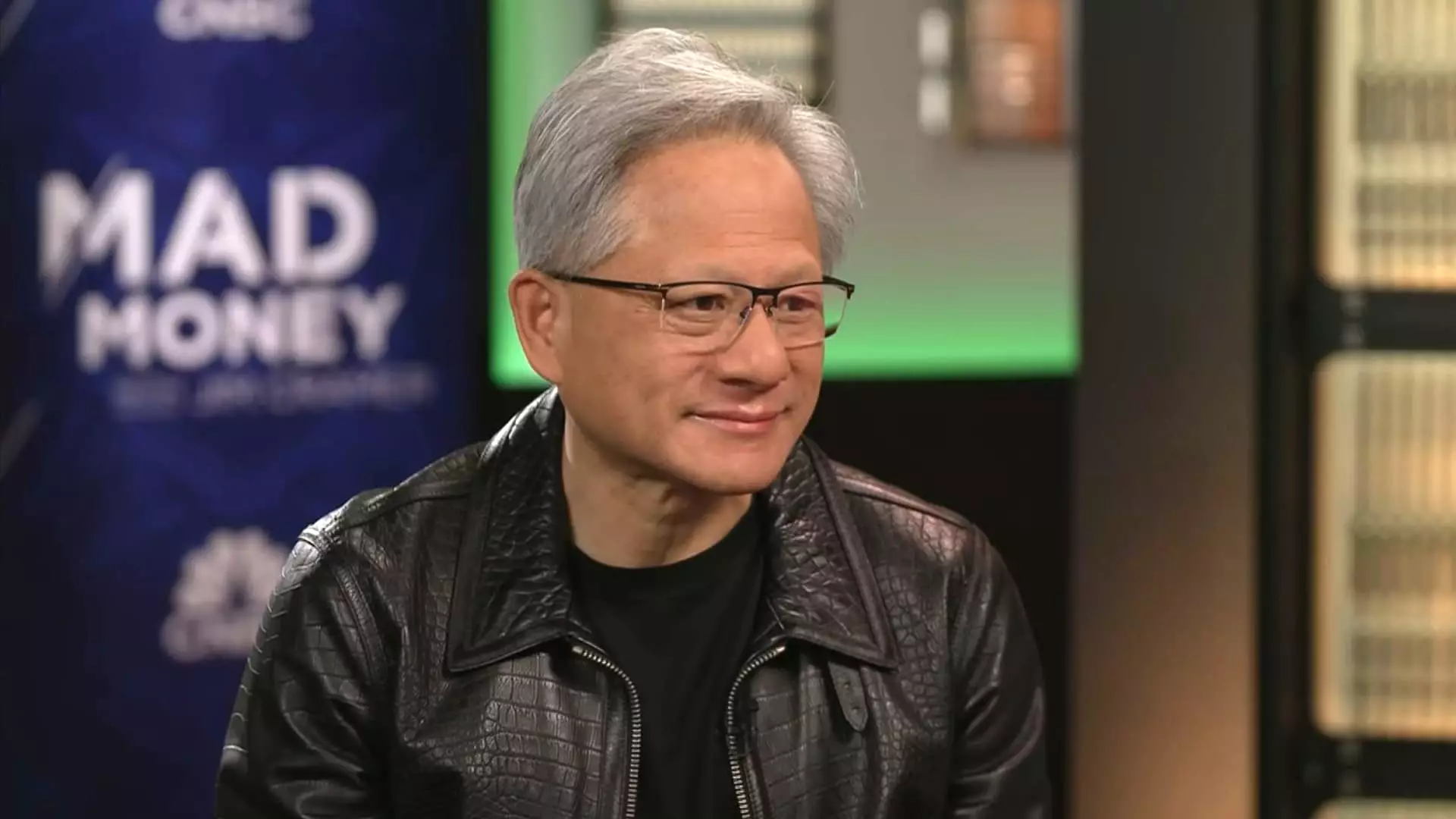Nvidia CEO Jensen Huang’s optimistic stance on the company’s potential amidst the turbulent landscape of U.S.-China trade relations stands as a bright pillar amid a complex reality. Huang asserts that the foundational role of artificial intelligence (AI) in every industry is untouchable, projecting a vision where these technologies continuously evolve, rendering short-term setbacks insignificant. Long-term, AI is not merely a trend; it is an integral aspect of operational frameworks globally. Rather than bowing to the pressures from tariffs imposed by the Trump administration, Nvidia appears poised to transform challenges into opportunities.
The Manufacturing Shift to America
Huang’s commitment to bolstering American manufacturing demonstrates a critical pivot—to not only foster innovation but also to create jobs within the domestic economy. While skeptics might argue that tariffs potentially undermine this objective, Huang believes that the possibilities are vast, especially with collaborative partners like TSMC, Foxconn, and Wistron. The narrative of bringing manufacturing back to the U.S. reflects a deeper intention: reinvigorating American industry while reducing reliance on foreign imports. As trade tensions intensify, Nvidia’s strategy could serve as a blueprint for other tech companies, emphasizing American competitiveness and innovation.
Stock Market Volatility and Strategic Growth
Despite a significant drop in Nvidia’s stock price—over 20% from its January heights—the fluctuating market may not be as foreboding as it seems. This volatility can be viewed as a reasonable response to heightened competition in the AI space. The emergence of competitors such as DeepSeek, which threatens to deliver superior performance without a hefty investment, highlights a critical area for Nvidia to address. However, Huang’s dismissal of these threats reveals a confident belief in Nvidia’s technological edge, where demand for their chips will only escalate as more companies seek to harness AI.
The Impact of Export Controls
The intricacies of export controls, particularly under the Biden administration, have curtailed Nvidia’s dealings in China, resulting in a sizeable loss of revenue from that market. Yet, the narrative should also consider the opportunity for Nvidia to diversify its market engagements. Limiting reliance on a single geography serves as a potential safeguard against unforeseen geopolitical shifts. As the company adapts to these changes, it could find new avenues for growth that might have been previously submerged within its expansive focus on China.
The Future of AI in a Tech War
In a political climate marred by trade wars and tariff threats, Huang’s unwavering belief in the necessity of AI illustrates an acute understanding of technology’s trajectory amid societal challenges. The assertion that AI will become the operating system for various industries reflects a forward-thinking approach that is crucial in navigating bureaucratic hurdles. The trade landscape may pose hurdles, but it does not completely eclipse the opportunities presented by a rapidly evolving tech ecosystem.
Nvidia’s journey portrays resilience, adaptability, and foresight in the face of adversity. With Huang at the helm, the company is not just surviving the storm—the ambition is to thrive, turning the tides in favor of technological advancement and American manufacturing. This perspective not only challenges prevailing pessimism but inspires a reimagined future where innovation knows no boundaries.

